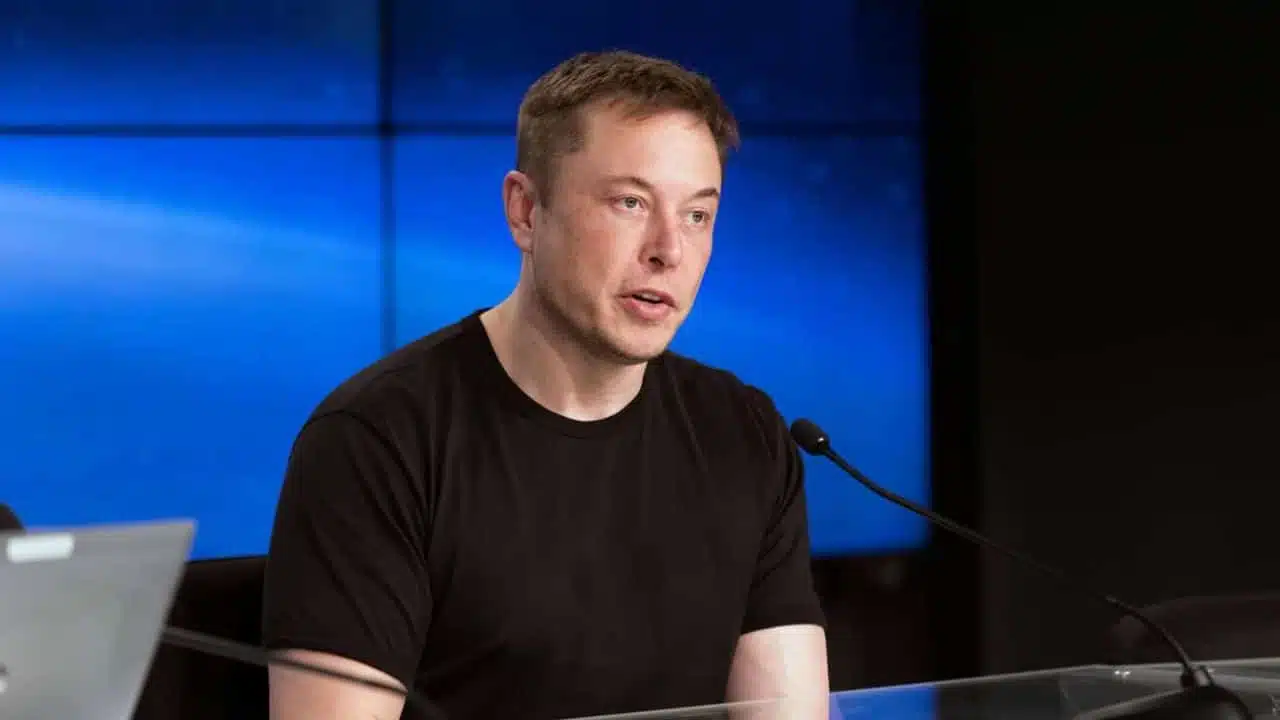In a significant development, Elon Musk has announced that his aerospace company SpaceX will be filing a lawsuit against the Federal Aviation Administration (FAA) in response to fines the regulatory agency has proposed regarding two separate space missions conducted in 2023. The proposed fines, which total $633,009, are related to alleged safety violations during rocket launches that took place in May and July of that year.
This legal battle marks another chapter in Musk’s ongoing criticisms of U.S. regulatory bodies, particularly those overseeing the increasingly commercialized space industry. SpaceX, which has become a dominant force in the field of commercial space travel and exploration, has frequently clashed with regulatory agencies over the balance between innovation, safety, and environmental responsibility.
FAA Accuses SpaceX of Two Major Safety Violations in 2023
According to the FAA, SpaceX violated key safety protocols during two different launches in 2023, which led to the imposition of the proposed fines. The first violation occurred in May 2023, when SpaceX requested the FAA to approve changes to its launch license for the Cape Canaveral Space Force Station in Florida. This request sought to add a new launch control room and to remove a mandatory readiness poll, which is a crucial part of the safety procedures for launching rockets. However, before receiving official approval for these changes, SpaceX went ahead and used the new, unapproved control room for a mission, bypassing the required readiness poll. The FAA has imposed a $175,000 fine for each violation related to this mission, for a total of $350,000.
In a second violation in July 2023, SpaceX is accused of using an unapproved rocket propellant farm during a separate launch. The FAA has proposed an additional fine of $283,009 for this breach of protocol. Together, these fines amount to over $600,000, adding to the growing regulatory scrutiny SpaceX has faced in recent years as its operations scale up.
The FAA’s concerns are rooted in its mandate to ensure the safety of commercial space travel and to protect the public. As more private companies like SpaceX enter the space sector, the FAA has been tasked with overseeing not only the safety of the companies’ employees but also the safety of communities surrounding launch sites, the environment, and national airspace.
FAA’s Commitment to Safety
In a statement addressing the proposed fines, Marc Nichols, Chief Counsel of the FAA, emphasized that the agency’s primary focus is safety. “Safety drives everything we do at the FAA, including a legal responsibility for the safety oversight of companies with commercial space transportation licenses,” Nichols explained. He added, “Failure of a company to comply with the safety requirements will result in consequences.”
This statement from the FAA highlights the agency’s critical role in regulating the burgeoning commercial space industry, which has seen rapid growth in recent years thanks in large part to companies like SpaceX. The FAA is responsible for ensuring that companies comply with safety regulations that are designed to protect both the companies themselves and the public from potential harm that could arise from accidents or non-compliance with established protocols.
Musk’s Response: Accusations of “Lawfare” and Claims of Regulatory Overreach
Elon Musk, never one to shy away from public confrontation, responded swiftly and strongly to the FAA’s proposed penalties. Musk, who has repeatedly clashed with regulators over various issues in the past, accused the FAA of engaging in “lawfare,” a term used to describe the weaponization of legal and regulatory systems to suppress or hinder an opponent. Musk shared his views on the matter via his social media platform X (formerly Twitter), where he has over 150 million followers.
“SpaceX will be filing suit against the FAA for regulatory overreach,” Musk posted on Tuesday, signaling that the aerospace company is prepared to challenge the fines in court. By characterizing the fines as an example of lawfare, Musk is suggesting that the FAA is using its regulatory powers unfairly to stifle SpaceX’s progress.
This isn’t the first time Musk has clashed with the FAA. In fact, just a week prior to this latest legal dispute, SpaceX publicly criticized the FAA, accusing the agency of holding back its efforts to launch its next-generation rockets. SpaceX pointed specifically to delays in the testing of its Starship megarocket, a crucial part of its mission to eventually land humans on Mars. According to SpaceX, the FAA had postponed the fifth Starship test flight from September to November 2024 due to what SpaceX described as “superfluous environmental analysis.” Musk’s comments about regulatory overreach reflect the broader frustration SpaceX has expressed toward what it sees as unnecessary bureaucratic hurdles that are slowing down its ambitious plans.
The Stakes: Innovation vs. Regulation
Musk’s latest battle with the FAA highlights the growing tension between private sector innovation and government regulation, particularly in industries like space exploration, where the stakes are incredibly high. SpaceX has been at the forefront of pioneering new technologies, such as reusable rockets, that have revolutionized space travel and drastically reduced the cost of launching payloads into space. However, as the company pushes boundaries, it also raises questions about the role of regulatory agencies like the FAA in ensuring that these innovations do not come at the expense of safety or environmental protection.
The FAA, like other regulatory bodies, operates under a legal framework designed to prioritize public safety, but as the commercial space industry grows, there are concerns that regulatory frameworks may struggle to keep up with the pace of innovation. The balance between encouraging technological advancements while ensuring public and environmental safety is a delicate one, and disputes like the one between SpaceX and the FAA are likely to become more common as private companies continue to push the limits of what’s possible in space.
Musk’s Increasing Political Involvement
This legal dispute with the FAA also comes at a time when Musk’s political influence is becoming more visible. In recent months, former President Donald Trump has proposed that Musk could take on a significant role within the federal government. Trump suggested that Musk could lead a new commission tasked with conducting a comprehensive financial and performance audit of all federal agencies. This commission, dubbed the Department of Government Efficiency (DOGE) — a playful nod to Dogecoin, a cryptocurrency favored by Musk — would be responsible for identifying inefficiencies within the federal government and proposing drastic reforms.
If Musk were to accept such a role, it would position him at the helm of a commission with oversight powers that could extend to agencies like the FAA, the very agency he is currently in conflict with. However, taking on such a position could present serious conflicts of interest. Musk’s leadership roles at SpaceX, Tesla, and several other companies would likely require him to place his stock holdings in a blind trust or divest from these businesses to avoid conflicts, a move that could have significant financial implications. For example, Tesla’s stock price could take a hit if Musk were to step back from his active involvement in the company.
Musk’s Expanding Business Empire
Despite these legal and political developments, Elon Musk continues to expand his business empire across multiple sectors. Beyond SpaceX, Musk is the CEO of Tesla, the world’s leading electric vehicle manufacturer. He also heads several other innovative companies, including Neuralink, which is developing brain-machine interface technology, and The Boring Company, a firm that focuses on developing underground transportation systems.
Musk is also involved in artificial intelligence with his startup xAI, and his nonprofit foundation has launched several philanthropic initiatives, including a new private school in Texas. Earlier this year, Musk even helped establish a super political action committee (PAC) in support of Donald Trump’s 2024 presidential campaign.
The Broader Implications
As Musk continues to push the boundaries of technology and challenge regulatory frameworks, the broader implications of his battle with the FAA are clear. SpaceX’s success has already transformed the commercial space industry, but the company’s future growth may depend in part on how it navigates these regulatory challenges.
The legal battle between SpaceX and the FAA could set an important precedent for how regulatory agencies approach the rapidly evolving space industry. With more private companies entering the field, including ventures like Blue Origin and Rocket Lab, the outcome of this lawsuit could have far-reaching implications for how commercial space operations are regulated in the future.
In the meantime, all eyes will be on the legal proceedings between SpaceX and the FAA, as Musk prepares to challenge what he sees as excessive regulatory oversight while continuing to push forward with his ambitious plans for space exploration.






































